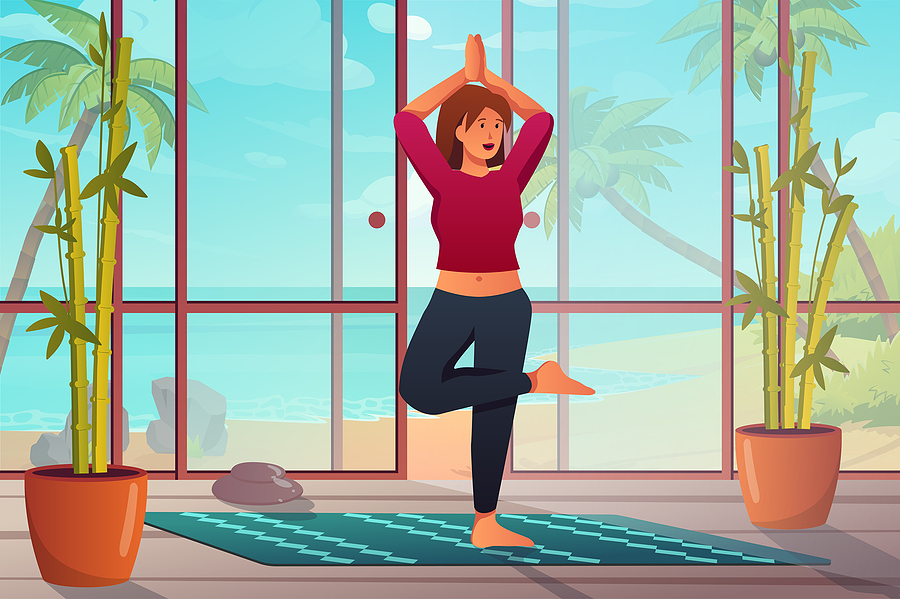Physiotherapy for dizziness & vertigo: what does it involve?
by Edel Williams
Chartered Physiotherapist

This is Part 2 of our series of blogs about dizziness and vertigo. If you haven’t read Part 1 – “Did you know that physiotherapy can help symptoms of vertigo” then check it out here.
There is a strong body of evidence in support of physiotherapy for treatment of vestibular problems. The message is that yes it works well and it actually works better when done early! So this is great reason to seek advice from your GP or a vestibular physiotherapist as soon as you notice signs of vertigo. It is very treatable at all stages but if you catch it early, you can minimise the secondary issues it can bring such as poor balance, altered gait and neck stiffness. A lot of people we see with these symptoms have often suffered in silence for quite a long time. This may be that they don’t realise anything can be done or think that it is a normal part of aging. We get great feedback from patients – it can literally be life-changing! The aim of this part of the blog series is to provide information about what to expect from physiotherapy assessment and the treatment involved.
What to expect during your first physiotherapy appointment
1) Questionnaires
It is quite common for your physiotherapists to ask you to fill in a questionnaire when you first arrive – this can give us some really useful information about how your symptoms are affecting your quality of life and gives you something to compare to on completion of your treatment.
2) Lots of questions
It is very important to rule out any other causes that may need onward referral to a consultant neurologist or ENT specialist for further investigation, so this is routinely screened for. It is also important to get a detailed medical history because there are certain conditions and medications that have a bearing on examination, treatment and prognosis. We will ask for specific details about your symptoms, including the history of onset, frequency and intensity of symptoms and what triggers them. We are also really interested in how this is affecting you – how does it impact your quality of life? Are you able to work and function in your day to day activities? Are you avoiding situations in order to cope? And how is this affecting your mental health? These are all quite common themes. It can be really useful to take along any scan reports or list of medications to your appointment.
3) Eye tests
The eyes are closely linked to your vestibular system so we usually carry out a few simple eye tests to indirectly assess your inner ear function and rule out other causes of dizziness. We can test the eye muscles, reflexes and vision/gaze function. If you normally wear glasses, you may wear them for this
4) Positional manoeuvre tests
There are specific tests for BPPV, which help determine the choice of treatment technique. This involves putting you into certain positions, moving the fluid around in your ear canals using head positioning, speed of movement and gravity to help identify exactly what is causing your symptoms. Unfortunately, the point of these tests is to reproduce your dizziness so it is important to be aware of this but also to acknowledge that is a good sign if you become dizzy – this means we can use this information to help settle your symptoms! Your physiotherapist will always make time to explain and demonstrate these positions to ensure your comfort and confidence throughout the test. We know exactly how to support you to make sure you feel safe and secure. We will be looking into your eyes to check for their reaction to these positions and will also ask you to provide feedback on your symptoms during the tests. If we can reproduce your symptoms, we will then use this as a treatment technique! what we are aiming for because this gives us clues as to exactly what is causing it! This will all be explained thoroughly and you will be guided through it all at your own pace – usually slow and steady!
5) Balance & walking tests
We will often assess your balance and walking, within your own limits. This helps us to prescribe you the most helpful exercises for you to practice at home and to use as a baseline to measure your improvement.

6) Musculoskeletal assessment
Sometimes, people can develop pain and stiffness throughout their neck as a reaction to cope with vertigo. Usually, any neck related symptoms settle once the dizziness eases but sometimes, we may include treatment and exercise to resolve this.
Tips for attending your first physiotherapy appointment
- Take someone with you or at least make sure you have someone to accompany you home afterwards
- Please bring any imaging reports and medication lists if applicable
- Wear comfortable clothing and footwear
- Be yourself – wear glasses, hearing aids etc if you normally do!
What does the treatment involve?
This varies, depending on what we find in our assessment. The main aim of treatment is to improve your symptoms of dizziness during all the activities you like doing. Usually, it will involve a positional manoeuvre very similar to the positional test that provoked your symptoms and we may repeat this treatment during the session. We will then choose specific exercises for you to perform at home. This might be a simple eye exercise or some balance exercises. We will always try to tailor it to each person. There is no specific prescriptive exercise that suits everyone. At follow-up sessions, exercises will be reviewed and adapted to make sure you are always progressing and pushing forward to achieve your goals! The main components of treatment are outlined in further detail below.

1) Education
Education and reassurance is vital. We spend time explaining the examination findings and what that means. There are also lots of great reputable online resources that your physiotherapist can point you to for further information.
2) Positional Manoeuvres
BPPV cases respond really well to positional manoeuvres, the most well-known being the Epley manoeuvre, which aim to relocate the crystals back to the otolith, where they belong. I think the analogy of the ‘marble in the maze’ game explains this really well. Essentially, we are trying to tilt and move the ‘ball’ around to get it back to where it came from, utilising our knowledge of the anatomy to and function of the inner ear.

3) Vestibular rehabilitation
Equally as important, and the main component of treatment, regardless of the original cause, is vestibular rehabilitation. Essentially, although the manoeuvres get the marble out of the maze, the rehabilitation helps to keep it out and also helps to fix any damage to the maze caused by the marble’s escape! Our main aim at this stage is to stimulate the vestibular system by challenging it with specific exercises in order to build up a tolerance to everyday movements. Balance is almost always affected too, so this is something that we can also re-train with graded and progressive balance exercises. Sometimes, we will give you neck or lower body exercises too. Official guidelines on this type of treatment suggest regular exercises for eye function and balance form part of the gold standard for vestibular treatment.
4) More tests
Treatment is only good enough if we can prove that it works! The treatment sessions will usually involve repeated testing and re-testing all the assessment tests again until they are clear. This serves to highlight your improvements in an objective way and ensure we have addressed all the issues identified during the first appointment.
Outcome
Good news! The outcome is almost always a really positive one! There is very strong scientific evidence that physiotherapy is extremely effective with this group of people – up to 90% success rate is associated with physiotherapy for vestibular problems, BPPV being the most responsive. Improvements in symptoms, eye function, balance and walking as well as overall confidence have all been documented as positive responses to physiotherapy. Clinical experience also indicates that there is almost always a vast improvement!
The evidence also suggests that attending for physiotherapy in the early stages is important and increases the success rate. So if you suffer with symptoms of dizziness or vertigo book an assessment for an assessment with a chartered physiotherapist with a special interest in vertigo.

If you would like to book an appointment for assessment of dizziness or vertigo with Edel Williams, please call EBTC on 091 727777 or get in touch via the contact page.
Category: Uncategorized


